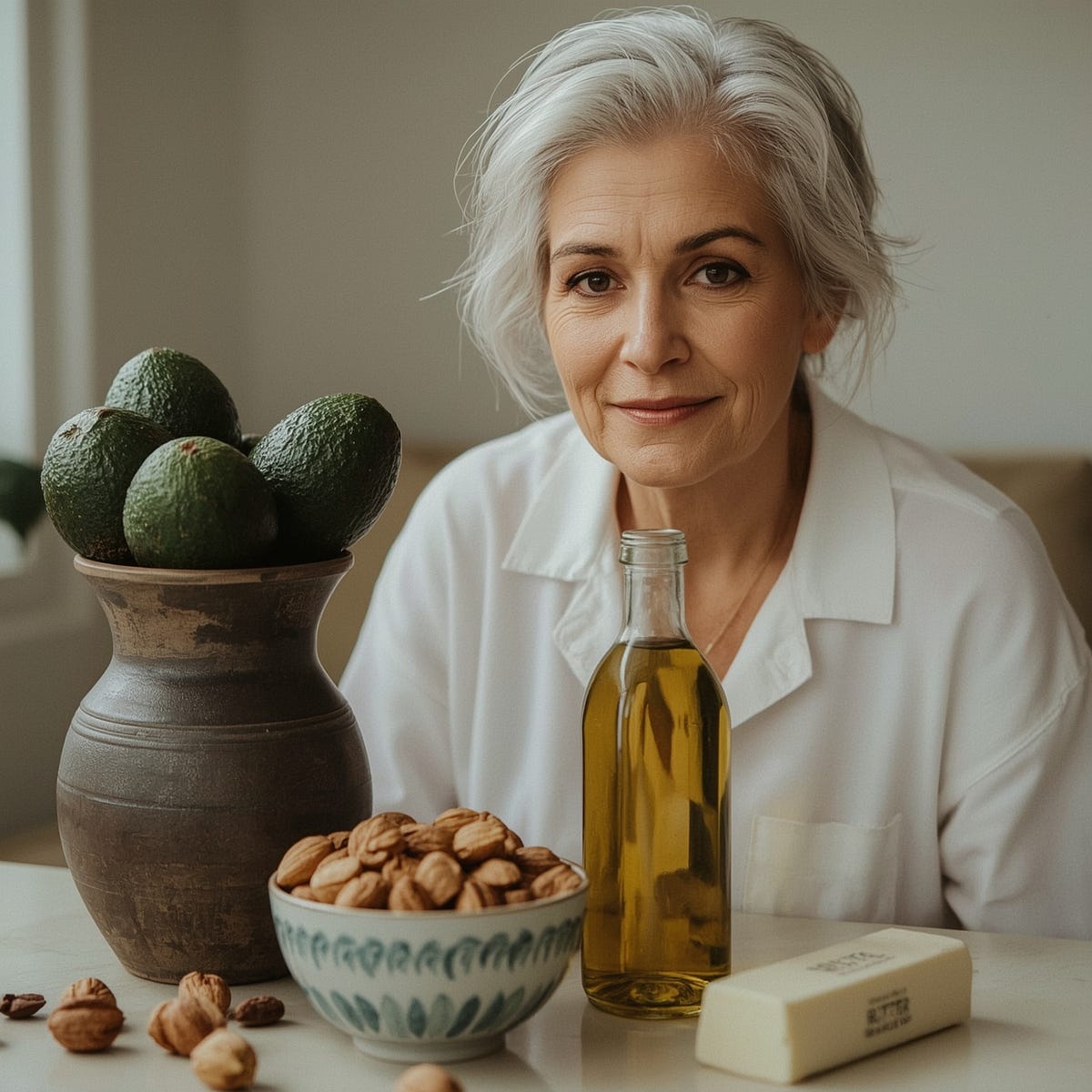Longer life, more plant oils, and less butter?

Increasing plant-based fats and decreasing butter consumption may help people live longer.
Unfortunately for butter enthusiasts like me, a recent Harvard study that was published in JAMA Internal Medicine gave a strong push to the seesawing studies on whether butter is healthful or unhealthy. Using decades’ worth of data from long-term observational studies, the researchers looked into the potential effects of plant oils and butter on mortality.
Just one simple lesson? Yu Zhang is the study’s lead author. “A higher intake of butter increases mortality risk, while a higher intake of plant-based oil will lower it,” she adds. Most crucially, people may live longer if they choose to use specific plant oils instead of butter.
What differences between butter and plant oils did the study find?
Based on the amount of butter and plant oils that individuals reported using on dietary questionnaires, the researchers split the participants into four groups. Over a maximum of 33 years, they compared the deaths of people who consumed the most butter or plant oils with those who consumed the least.
Plant oils were a clear winner. Those who consumed the most butter had a 15% increased risk of dying compared to those who consumed the least. Those with the highest intake of plant oils had a 16% decreased chance of dying than those with the lowest intake.
onsuming more butter also increased the risk of dying from cancer. Additionally, consuming more plant oils reduced the chance of dying from cardiovascular disease, such as a heart attack or stroke, or cancer.
Only soybean, canola, and olive oils were associated with survival improvements, despite the fact that the study examined five different plant oils. According to a modelling analysis, replacing a tiny amount of butter in the daily diet — roughly 10 grammes, or slightly less than a tablespoon — with an equivalent amount of those plant-based oils was associated with fewer deaths overall and fewer deaths from cancer.
In what ways might using plant oils instead of butter be healthier?
According to an email from Dr. Walter C. Willett, professor of epidemiology and nutrition at the Harvard T.H. Chan School of Public Health and professor of medicine at Harvard Medical School, “Butter has almost no essential fatty acids and a modest amount of trans fat-the worst type of fat for cardiovascular disease.”
The plant oils mentioned in this study, on the other hand, are abundant in unsaturated fats, antioxidants, and essential fatty acids, all of which have been connected in studies to reduced insulin resistance and better levels of triglycerides and cholesterol.
Plant oils may also help reduce chronic inflammation in the body, particularly when used in place of saturated fats like butter. Such adjustments are in line with the current Dietary Guidelines for Americans and the American Heart Association’s guidelines for a healthy diet that reduces the risk of chronic illness.
And for those who enjoy butter? According to Dr. Willett, “a little butter for its flavour would not be a problem.” “But for better health, use liquid plant oils whenever possible instead of butter for cooking and at the table.” He advises trying a range of plant oils, such as mustard oil, sesame oil, and various olive oils, to see which ones you favour for various uses. Furthermore, a combination of butter and oils, or perhaps just a small amount of butter, might satiate palates.
What about the strengths and limitations of the study?
The study analysed information obtained from a survey completed every four years by almost 221,000 persons who were included in the Health Professionals Follow-Up Study, Nurses’ Health Study, and Nurses’ Health Study II. Although this kind of research contributes to the body of evidence, it cannot establish cause and effect, as is the case with all observational studies. The results might not be generalisable to a larger population because the majority of participants were white medical professionals.
Numerous factors that can impact health were taken into account by the researchers, such as age, level of physical activity, smoking status, and family history of diseases including diabetes and cancer. Strengths include the study’s size, the duration of the follow-up, and other adjustments such as these.
Comments
Post a Comment